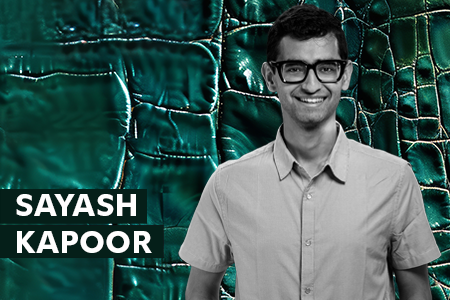
Observations
We are focused on the social trends that could shape the future and the tech tools that may drive it. Our projects are informed and influenced by our engagement with experts across the research, tech and design spectrums. In this space, we share what we’re learning, what’s inspiring, and what’s next.

Blockchain
By: Kevin Kelly & Mia Galvin | October 28, 2025
Solana’s ecosystem is set to undergo significant transformation, and this report from FCAT’s Blockchain team explores a new era of network performance and efforts to redefine the underlying economics that drive validator activity on-chain.
10/28/2025
Article

Blockchain
By Jack Blatchford & Matt Allen
In this second installment of our "Bitcoin Renaissance" series, FCAT’s blockchain analysts explore the surge in Bitcoin developer activity prompted by ordinals and new technologies — examining the emerging use cases and innovations that are enhancing the protocol's functionality, scalability, and utility.
08/28/2025
Article

Sociocultural
By: John Dalton | July 16, 2025
FCAT’s John Dalton interviewed Rhaina Cohen to discuss how deeply committed friendships can transform lives and bring joy, support, and fulfillment to those who prioritize non-romantic relationships.
07/16/2025
Article

Sociocultural
By: John Dalton | June 27, 2025
FCAT’s Anjali Lai shares her research about parenting and how shifting social norms are shaping the next generation of parents.
06/24/2025
Article

Sociocultural
By: John Dalton | May 14, 2025
FCAT’s John Dalton met with J. Doyne Farmer, author of Making Sense of Chaos: A Better Economics for a Better World to discuss complexity economics, as well as climate and agent-based modeling.
05/12/2025
Article

Design
By: Will Reed | May 5, 2025
FCAT’s Will Reed met with engineer and author Julian Bleecker, Ph.D. to discuss Design Fiction, Futures Design, and the process of creating new technologies.
05/05/2025
Article

Artificial Intelligence
By: John Dalton | January 17, 2025
Thought leader Sayash Kapoor offers his perspective on bogus AI claims, why people fall for them, and how users can cut through the hype to tap into AI’s true potential.
01/17/2025
Article

Artificial Intelligence
By: Elton Zhu and Serdar Kadıoğlu | November 26, 2024
FCAT collaborated with Amazon Quantum Solutions Lab to propose a new scalable pruning algorithm for large language and vision models.
11/26/2024
Article

Artificial Intelligence
By: Matt Ehlers | November 19, 2024
Generative AI models have been trained by an enormous amount of data scraped off the internet, but as new data becomes scarce, companies are increasingly experimenting with synthetic data.
11/21/2024
Article

Blockchain
By: Matt Allen and Jack Blatchford | November 1, 2024
In January 2023, Bitcoin developer Casey Rodamor combined two previous upgrades to Bitcoin Core’s protocol to launch Ordinals and Inscriptions. The project jumpstarted Bitcoin and Layer 2 development as projects previously deemed impossible on Bitcoin were reconsidered with newfound enthusiasm. This movement has been dubbed the “Bitcoin Renaissance”. This paper is the first in a three-part series providing an overview of what L2s are, how they function, and what sorts of applications they enable on Bitcoin.
11/01/2024
Article

Artificial Intelligence
John Dalton| October 25, 2024
In Superconvergence, Jamie Metzl explains how emerging genetic, biotechnical, and AI technologies will transform our world. FCAT’s John Dalton spoke with Metzl about his research and how he hopes we can move forward as a society.
10/25/2024
Article

Fintech
Matt Ehlers | October 14, 2024
Jeff Cain leads FCAT’s fintech research team, which dissects trends across the industry — from money movement and digital currencies to insurance, superapps, and everything in between. Recently Jeff has been delving into the idea of “dynamic paychecks,” in which payroll providers use APIs to help fintechs give employees more control over how their money is divvied up among accounts.
Direct deposit, it seems, is on the verge of an extreme makeover.
10/14/2024
Article

Sociocultural
By: Matt Ehlers | September 12, 2024
FCAT researcher Anjali Lai focuses on the sociocultural trends that underpin American life.
09/12/2024
Article

Quantum
By: Elton Zhu | July 30, 2024
FCAT quantum researcher Elton Zhu delves into a proposed optimization solver and explores how this combination of high-performance and quantum computing techniques may hold the power to spark breakthroughs in finance and other fields.
07/30/2024
Article
Blockchain
By: Matt Ehlers | July 23, 2024
FCAT’s lead blockchain researcher Vanessa Kargenian shares her insights on how stakeholders are driving regulatory innovation across the industry.
07/23/2024
Article

Blockchain
By: Kevin Kelly | June 25, 2024
In this article, we closely examine Ethereum’s network resiliency through the lens of validators, the backbone of the network’s security. We assess some of the most critical validator metrics such as staker profitability, client diversity, and slashing events.
06/25/2024
Article

Sociocultural
By: Matt Ehlers | June 18, 2024
FCAT researcher, Deanna Laufer shares trends around the changing nature of families, and how those changes can impact how people find jobs, develop relationships, and build resiliency.
06/17/2024
Article

Tag Title
By: Author name | Date 00, 2024
Lorem ipsum dolor sit amet, consectetur adipiscing elit, sed do eiusmod tempor incididunt ut labore et dolore magna aliqua. Ut enim ad minim veniam, quis nostrud exercitation ullamco laboris nisi ut aliquip ex ea commodo consequat. Duis aute irure dolor in reprehenderit in voluptate. Ut enim ad minim veniam, quis nostrud exercitation.
06/14/2024
Article

Blockchain
By: Sophia Li, Joshua Chen, et. al | April 22, 2024
This research paper establishes a quantitative framework to test the relationship between blockchain network health metrics and digital asset prices. With a better understanding of the blockchain metrics that impact native token prices, investors might more appropriately focus their research and generate a differentiated investment thesis.
06/14/2024
Article

Tag Title
By: Author name | Date 00, 2024
Lorem ipsum dolor sit amet, consectetur adipiscing elit, sed do eiusmod tempor incididunt ut labore et dolore magna aliqua. Ut enim ad minim veniam, quis nostrud exercitation ullamco laboris nisi ut aliquip ex ea commodo consequat. Duis aute irure dolor in reprehenderit in voluptate. Ut enim ad minim veniam, quis nostrud exercitation.
06/14/2024
Article

Tag Title
By: Author name | Date 00, 2024
Lorem ipsum dolor sit amet, consectetur adipiscing elit, sed do eiusmod tempor incididunt ut labore et dolore magna aliqua. Ut enim ad minim veniam, quis nostrud exercitation ullamco laboris nisi ut aliquip ex ea commodo consequat. Duis aute irure dolor in reprehenderit in voluptate. Ut enim ad minim veniam, quis nostrud exercitation.
06/12/2024
Article

Artificial Intelligence
By: John Dalton | June 6, 2024
FCAT interviews Ethan Mollick, author of Co-Intelligence: Living and Working with AI about how AI will impact our personal and professional lives.
06/06/2024
Article

Sociocultural
Matt Ehlers | May 10, 2024
Researcher, Anjali Lai has been delving into the issues around the massive amounts of data we leave behind after we’re gone from this world: What happens to it? Who controls it—and most importantly, who has the right to it?
05/10/2024
Article

Sociocultural
By: Melissa Calise | April 25, 2024
Once a mere platform for college students to keep in touch, social media has evolved into a dynamic tool that merges our digital and physical worlds. With shifting trends and the rise of AI, blockchain and extended reality, we're witnessing a convergence of technologies that are reshaping how we interact, discover, and conduct business on social platforms.
04/25/2024
Article
Blockchain
By: Sophia Li, Joshua Chen, et. al | April 22, 2024
This research paper establishes a quantitative framework to test the relationship between blockchain network health metrics and digital asset prices. With a better understanding of the blockchain metrics that impact native token prices, investors might more appropriately focus their research and generate a differentiated investment thesis.
04/22/2024
Article

Quantum
FCAT Quantum Team | March 21, 2024
Our team of quantum experts answered probing questions on the current state of quantum and future computing and its relation to AI. Their conversation sheds light on the risks and opportunities that come with advances to computing technology and highlights some of the work FCAT is doing to prepare for a post-quantum world.
03/21/2024
Article
Quantum
Matt Ehlers | March 19, 2024
At first glance, it might not seem like Fortnite would have a place within Fidelity. After all, the act of saving for retirement is not embedded within the wildly successful video game that in some months has attracted more than 100 million users. But take another look. Succeeding at Fortnite can require communication, teamwork, and ingenuity, qualities that can help associates build successful Fidelity careers.
03/19/2024
Article
Sociocultural
By Deanna Laufer | February 6, 2024
Working multiple jobs is nothing new. To make ends meet, or boost their savings cushion, more than 8 million Americans work extra hours, second jobs, and side hustles. But around 2021, as job availability soared and remote work ruled, the internet became inundated with stories of something new: full-time employees, mostly remote and in engineering roles, secretly working two, three, or sometimes numerous career positions at different companies.
02/06/2024
Article
Sociocultural
By Deanna Laufer with Caroline Federal | January 25, 2024
Income has been synonymous with employer income for the majority of working-age Americans over the last 100 years. Most adults work for a living, and the vast majority of those who do work for an employer. But that’s changing. Employer income is playing a less dominant role for Americans as they’ve diversified their income sources into a mosaic of ways to earn money.
01/25/2024
Article
Blockchain
By: Matt Ehlers | January 17, 2024
Jack might have the perfect job for a guy who loves to talk crypto. Sure, he’s one of the hosts of the FCAT Crypto Brief podcast, but that’s only for 30 minutes a week. The rest of the time? He’s still neck deep into crypto as a researcher with Avon Ventures, which invests in startups that are innovating in the crypto space.
01/17/2024
Article
Blockchain
By: Will Baxter | January 8, 2024
We sat down with Mahesh Ramakrishnan, an early-stage venture investor, to discuss how crypto economies are recreating physical world infrastructure. Dubbed “DePIN,” Decentralized Physical Infrastructure Networks are an exciting application of public blockchains that start to answer the question: “Well, why crypto?”
01/08/2024
Article
Sociocultural
By: John Dalton | December 11, 2023
In their most recent book, Curious Minds: The Power of Connection, Dani S. Bassett and Perry Zurn, explore how curiosity works and how we can improve the practice of curiosity in our own lives. John Dalton, VP of Research at FCAT, spoke with Dani and Perry about their research.
12/11/2023
Article
Artificial Intelligence
By: Sarah Hoffman | December 6, 2023
Sarah Hoffman, VP of AI and Machine Learning Research in FCAT speaks with Juliette Powell, a researcher, entrepreneur, and keynote speaker at the intersection of technology and business, about how organizations can embrace responsible technology.
12/06/2023
Article
Artificial Intelligence
By: Sarah Hoffman | November 29, 2023
Generative AI still shows great promise, but its transformational power for large enterprises has so far been limited. While there are numerous challenges, inaccuracy, cybersecurity, intellectual-property infringement, and regulatory compliance are the four most commonly cited risks that organizations are working to mitigate. The good news: solutions are coming that will make it easier for enterprises to move forward over the coming year.
11/27/2023
Article
Artificial Intelligence
By: FCAT Quantum Incubator | November 21, 2023
Artificial Intelligence (AI) has become an integral part of our lives, shaping industries ranging from healthcare to finance and everything in between. However, as AI systems become increasingly complex, it becomes crucial to understand how they reach their decisions. This is where Explainable AI (XAI) and Simple Rules come into play. In this article, we will explore the concept of XAI and delve into the use of expressive Boolean formulas to make AI more transparent and interpretable.
11/21/2023
Article
Sociocultural
By: Deanna Laufer | November 20, 2023
In this discussion, Deanna Laufer, VP of Research at FCAT, speaks with Mauro Guillén, author and professor of management at the Wharton School, about the themes in his new book, The Perennials: The Megatrends Creating a Postgenerational Society.
11/20/2023
Article
Sociocultural
By: Deanna Laufer | November 1, 2023
The US expat community has doubled in the last two decades as Americans have sought a more affordable, and in some cases, better quality of life abroad. The rise in digital nomad visas and remote work could further boost this trend. Yet financial challenges remain largely unsolved for Americans abroad, making it harder for them to invest, save and plan.
10/31/2023
Article
Sociocultural
By: John Dalton | October 18, 2023
In her most recent book, 24/6: The Power of Unplugging One Day A Week, Tiffany Shlain, Emmy-nominated filmmaker and founder of the Webby Awards, explains how turning off our screens can enhance our well-being, focus, relationships and creativity. John Dalton, VP of Research at FCAT, spoke with Tiffany about her experiences embracing a break from tech and why she believes more of us should shut down our devices more regularly.
10/18/2023
Article

Blockchain
By: Ethan Atwood | October, 2023
Since Ethereum first launched in 2015 as the first peer-to-peer smart contract platform, numerous competitors with a similar vision have emerged. When comparing these blockchains, media outlets and investors typically focus on the price and market cap of a blockchain’s native token, while other indicators of success, such as usage, development, and decentralization are often overlooked. This paper explores blockchains through the latter lens and establishes a framework for assessing blockchain health.
10/14/2023
Article
Blockchain
By: Jacob Kozhipatt | September 19, 2023
Recently, FCAT collaborated with Olin College of Engineering’s Senior Capstone Program in Engineering(SCOPE) on a project aimed at debunking “get rich quick” cryptocurrency strategies that have proliferated online.
FCAT spoke with the four students involved in this project to hear about their motivations and learnings.
09/19/2023
Article
Artificial Intelligence
By: Sarah Hoffman | September 8, 2023
While ChatGPT can be a useful learning tool on its own, plugins and new tools that incorporate generative AI can further enhance the learning experience. These improvements will likely have implications that go far beyond the classroom.
09/08/2023
Article
Blockchain
By: Kevin Kelly | September 7, 2023
The introduction of ordinals has sparked debate across the Bitcoin community regarding proper use of block space. Some consider ordinals as "spam" to the blockchain, occupying unnecessary space. On the other hand, proponents view ordinals as a way to open up new use cases for Bitcoin and enhance network security through increased transaction fees. This piece provides a summary of ordinals and examines their broader implications on the Bitcoin ecosystem.
09/07/2023
Article
Artificial Intelligence
By: Supritam Sen et al. | August 23, 2023
In this paper, we discuss how we designed and created ‘Katalina’, FCAT’s brand ambassador. Designing a digital person required several design considerations and best practices when determining appearance, voice and language, personality and interactivity, and context and function. Technical architecture included considerations like intent routing, usage of semantic search to understand the user’s intent and prompting to guide the responses of the avatar.
08/23/2023
Article
Sociocultural
By: Jacob Kozhipatt | August 9, 2023
In his conversation with FCAT, former Snowflake CEO and Microsoft executive Bob Muglia shares his thoughts on recurring themes/lessons he's seen throughout his storied tech career –– and why he believes humans should be optimistic about how AI will impact their lives.
08/10/2023
Article
Aritificial Intelligence
By: Michael Musser and Maria Mancheno | August 10, 2023
Digital humans or digital people are emerging as a scalable touchpoint for customers across various markets. After creating FCAT’s own digital brand ambassador, the FCAT AIX team is sharing best practices for designing digital humans and their behaviors.
08/08/2023
Article
Blockchain
By: Matt Ehlers | August 3, 2023
Meet Ryan Stuebe, FCAT’s Director of Bitcoin Mining and co-host of the Crypto Brief. Ryan has spent his entire professional career at Fidelity, making diverse stops along the way as he grew into the go-to mining guy for the company.
08/03/2023
Article
Sociocultural
By: Jacob Kozhipatt | July 26, 2023
There is a burgeoning industry of “virtual” or “digital” influencers that brands use to replicate or augment the human influencer experience while minimizing the potential pitfalls of human influencers.
So, what are digital influencers –– and how are they faring? Should the creator economy be afraid of becoming digitized?
07/26/2023
Article
Artificial Intelligence
By: John Dalton | July 17, 2023
Generative AI is all the rage now. Coverage of tools like ChatGPT, DALL-E2, and Midjourney has been breathless, with pundits and practitioners predicting either doom or a new golden age for computing. What is really going on here?
07/17/2023
Article
ARTIFICIAL INTELLIGENCE
By: Sarah Hoffman | July 10, 2023
Generative AI is in its infancy, yet patients are using this technology to understand complex medical issues, get second opinions, and receive support and motivation. Medical professionals also stand to benefit by saving time on documentation and emails. Early implementations in healthcare may offer learnings applicable to the financial services industry and beyond.
07/10/2023
Article
Sociocultural
By: David Bracken | July 5, 2023
Changes to how we live and work have made us more susceptible to burnout. Our excessive use of technology in daily life is causing mental strain. This, combined with stressors created by the pandemic, is leading more people to check out and lash out.
07/05/2023
Article
Blockchain
By: Jacob Kozhipatt | June 27, 2023
FCAT India engineer Aurobindo Nayak –– who goes by Auro –– speaks about why Fidelity Center for Applied Technology provides him with meaning and opportunity.
06/27/2023
Article
Blockchain
By: Vanessa Kargenian | June 20, 2023
Up to $5 trillion could move to tokenized money formats like CBDCs, stablecoins, and deposit tokens by 2030. At this scale, at stake is not just the type of money used to buy goods, but the structure and operations of the financial system itself.
06/13/2023
Article

Quantum
By: Jacob Kozhipatt & Melissa Calise | June 13, 2023
FCAT is preparing Fidelity for the cybersecurity risks quantum computing may pose, while leveraging the powerful opportunities it presents.
06/13/2023
Article
Quantum
By: Elton Zhu and Serdar Kadioglu | June 8, 2023
In this POC, Amazon Quantum Solutions Lab and FCAT proposed and implemented an interpretable machine learning model for Explainable AI (XAI) based on expressive Boolean formulas.
06/08/2023
Article
Blockchain
BY: Chris Helms & Chris McGahon | May 23, 2023
Solidity development has been a rapidly growing topic within the world of blockchains, specifically Ethereum. There have been many different tools & frameworks that support smart contract development and testing. With many different choices, what is the best way for developers to traverse the ever-growing options? Here we explore modern frameworks and their benefits when building smart contracts.
05/23/2023
Article
Sociocultural
BY: Matthew Ledoux | May 22, 2023
FCAT shares their thoughts on the generative AI chatbot, ChatGPT, that's taken the world by storm. Designers, developers, and specialists share their thoughts.
05/22/2023
Article
Research
BY: Jacob Kozhipatt | May 18, 2023
In the most forward-looking chapter of the FCAT Priorities Report 2023, our researchers took a broader look at advances in deep technologies that are designed to help solve our world’s most pressing problems. The five technologies explored in this report include: synthetic biology, decarbonization, advanced robotics, agriculture, and space exploration.
05/18/2023
Article
Sociocultural
BY: Jacob Kozhipatt | May 15, 2023
In his conversation with FCAT, Waze founder Uri Levine speaks on how the current macro-economic climate impacts the future of start-ups and why great entrepreneurs should focus on the problem they are attempting to solve, rather than the solution.
05/15/2023
Article
Blockchain
BY: Meenakshi Singh | May 10, 2023
To mitigate the risks of financial loss and fraud, smart contract developers must prioritize smart contract security best practices from the outset. While numerous tools are available in the space, promising to identify vulnerabilities and propose fixes, there is no one-size-fits-all solution. It is crucial to select tools with broad coverage, easy integration, and generic applicability to reinforce security and reliability throughout the smart contract's development lifecycle.
05/10/2023
Article
Sociocultural
BY: Deanna Laufer | May 9, 2023
Writers and artists have donned pen names for hundreds of years. Now, the use of aliases has become commonplace across social media, gaming, and virtual worlds where anyone can explore facets of their identity and express their true selves using pseudonyms. With rapidly advancing avatar technology as well as a continued fear of public scrutiny, pseudonymity will likely further permeate into work, education, and finance where customers and associates will participate as their pseudonymous selves.
05/09/2023
Article
Sociocultural
BY: FCAT Design Team | May 5, 2023
A small team from FCAT Design (Kseniya Galper, Susan Fabry, and Will Reed) travelled to Austin, TX for the 2023 South by Southwest (SXSW) conference in March. SXSW bills itself as “the premier destination for dreamers, innovators, storytellers, and global thought leaders. Each March, this diverse group of creatives across the tech, film, and music industries converge for 10 days of collaboration.”
05/05/2023
Article
Blockchain
BY: Matt Ehlers | May 5, 2023
Parth Gargava, DeFi engineering lead and host of the FCAT Crypto Brief, readily admits that he’s not an expert on crypto regulations. And he’s not going to lose sleep if one country or another says they want to put a bunch of rules around digital currencies. He’s too busy tweaking and tinkering, fussing with the digital engines that make crypto systems hum.
04/24/2023
Article
Sociocultural
BY: JACOB KOZHIPATT| April 21, 2023
Everything that’s happened these past few months has caused legitimate questioning of how tech is tangibly making people’s lives better. Maybe it is here where reflecting on the venue city of Austin could be fruitful – a city that has risen to become a tech powerhouse, pushing many major Silicon Valley tech companies to uproot their Californian roots.
04/21/2023
Article
Blockchain
BY: Sarah Hoffman | April 20, 2023
In 2022, investors pumped $2.6 billion into generative AI startups—70% more than the previous year. The November 2022 release of ChatGPT, OpenAI’s powerful and much hyped new language model, further fanned interest. Like many, crypto enthusiasts have taken notice, turning to social media to share example after example of how ChatGPT might be applied to crypto and blockchain. Early use cases include coding trading bots and assisting with smart contracts.
04/21/2023
Article
sociocultural
BY: David Bracken | April 18, 2023
Over the past 60 years Americans’ social, political, and economic lives have been dominated by a strong emphasis on individualism. But there are signs this dynamic may be changing. Social activism and labor organizing are on the rise, fueled by digital media and networks. While Americans will always value individual freedom, changing online behaviors portend a shift in priorities that could have a profound impact on business.
04/18/2023
Article
Blockchain
BY: VANESSA KARGENIAN | April 11, 2023
Despite a rocky 2022 for the digital assets industry, blockchains remain a foundational technology poised to transform business operations and commerce. And while the big picture of how chains will communicate and interoperate with legacy technologies and other public chain networks is still forming, blockchain’s technology and ecosystem continue to rapidly evolve, finding applications across all industries and converging with AI and IoT to unleash new possibilities.
04/11/2023
Article
Blockchain
BY: KOSALA YAPA | April 6, 2023
Within the current EVM ecosystem, miners(validators) control block content building, a centralised process that leads to the MEV problem. The MEV problem directly impacts customers, and it has serious attention from regulators. Meta desc. The future of the Ethereum ecosystem and Defi highly depends on the resolutions to the problem problem of centralization in MEV.
04/06/2023
Article
sociocultural
BY: David Bracken | April 3, 2023
The pandemic. Inflation. Rising Interest rates. Over the past three years we’ve experienced a series of shocks that have altered how we perceive and value time. How we save, spend, manage, and invest our time are all now top of mind concerns. This is challenging many of our accepted notions about mental health and wellness, productivity, and future planning.
04/04/2023
Article
BLOCKCHAIN
BY: Will Baxter, Kevin Kelly | March 28, 2023
Staking is the process of supporting transaction verifications and new block creation for the Ethereum network. Validators, otherwise known as ‘stakers’ play a key role in performing key staking duties: storing data, processing transactions including confirming other validators’ actions, and appending new blocks full of transactions to the blockchain. In this article, we’ll explore the nuances behind staking.
03/28/2023
Article
Sociocultural
BY: Deanna Laufer | March 27, 2023
Families have been the basic unit of social and economic life across cultures, geographies, and nationalities for thousands of years. That started to change in the middle of the 20th century, when a growing number of people started living alone for sustained periods. These solo dwellers, or soloists, include people delaying partnership to later in life, those choosing to remain single and live alone without roommates or family, as well as divorced or widowed adults who reside independently.
03/22/2023
Article
Blockchain
BY: ALE VIGILANTE AND LAUREEN OUELLET | March 16, 2023
Fintech’s Third Wave—the use of tokenization and smart contracts to rebuild the infrastructure, processes, and business models underlying fiat money and traditional assets—is well underway. The transition to this blockchain-based infrastructure for our industry will likely follow a path of least resistance, with different products and processes charting their own paths.
03/14/2023
Article
Artificial Intelligence
BY: Sarah Hoffman | March 8, 2023
We’re in a new era of AI. “It feels like we’re going from spring to summer,” said Jack Clark, a co-chair of Stanford University’s annual A.I. Index Report. “In spring, you have these vague suggestions of progress, and little green shoots everywhere. Now, everything’s in bloom.” In less than three years, we’ve seen AIs become...
03/07/2023
Article
Quantum
BY: Elton Zhu | March 6, 2023
Monte Carlo methods are a broad class of computational algorithms that rely on repeated random sampling to predict outcomes of complex scenarios with multiple unknowns. They’re commonly used in the financial industry to evaluate risks, price derivatives, and create long-term strategies, as in the case of retirement planning.
03/02/2023
Article
Emerging Technology
BY: Jacob Kozhipatt | March 1, 2023
The report is the result of extensive analysis of societal trends and emerging technologies by the FCAT research team. Its eight chapters dive into key themes in technology and culture and will be made available over the coming weeks. Until then, here is a sneak preview into what to expect and how the findings could impact the future of finance and beyond.
02/28/2023
Article
EMERGING TECHNOLOGY
BY: Jacob Kozhipatt | February 27, 2023
MIT’s XR Hackathon is one of the prestigious competitions in immersive tech. A majority of applicants come from the United States, China, and India. The background of the attendees reflected the demographic change that’s occurred in the broader XR space. What happens at the hackathon?
02/27/2023
Article
ARTIFICIAL INTELLIGENCE
BY: Sarah Hoffman | February 14, 2023
OpenAI’s new text generator ChatGPT attracted over 1 million users just a few days after launch. The app’s performance made headlines with some even comparing the significance of the release to the debut of the iPhone. So, what's the big deal?
02/14/2023
Article
FCAT…IN PLAY
BY: John Dalton | February 14, 2023
Humanity-centered design is used to create solutions that benefit the good of humanity, which includes all people in the world, animals, plants, and the environment. We still must design for people, but we must also think about the secondary effects of those human-centered designs. We must look at the impact of what we're designing, not just on the profitability of the company, but instead the profitability of the world.
02/13/2023
Article
FCAT…IN PLAY
BY: Deanna Laufer | February 2, 2023
Gen X are in their peak earning and retirement savings years, yet this “forgotten generation” can be overlooked when it comes to the complexity of their financial needs. There is an opportunity to cut through this complexity with time-saving automation, digitization, and guidance to increase their confidence in achieving their long term goals.
02/02/2023
Article
BLOCKCHAIN
BY: Travis Beaulieu | January 27, 2023
Decentralized finance (DeFi) is a nascent but rapidly growing area in the crypto industry, and many protocols have seen steady usage despite a significant decline in token prices. Hacks from code vulnerabilities, scams, and centralized exchange malpractice have harmed the industry’s reputation, and looming regulation should not be overlooked. As DeFi matures, however, these challenges can be overcome through innovation to provide a more secure, user-friendly experience for the next wave of crypto users.
01/27/2023
Article
FCAT Crypto Brief™
BY: Matt Ehlers | January 17, 2023
Jason Ward didn’t need to take on the booms, busts, structural complexities, regulatory uncertainty, and energy-consumption concerns of the blockchain and its attendant technologies.
01/17/2023
Article
Blockchain
BY: Vanessa Kargenian | January 13, 2023
Why even use a private blockchain, wouldn’t a database suffice? It’s a question that’s colored most enterprise technology inquiries surrounding blockchain infrastructure adoption since Bitcoin launched in 2009. And it’s even more timely now as both layer 2 scaling solutions that enhance privacy and speed, as well as newer interoperable chains are making public chains more appropriate for enterprise use.
01/13/2023
Article
Artificial Intelligence
BY: Sarah Hoffman | November 22, 2022
New AI image-generation tools are emerging that allow anyone, regardless of technical proficiency, to become an artist, a graphic designer, or an illustrator. And the quality of the output is surprisingly good and will no doubt improve quickly.
11/22/2022
Article
Sociocultural
BY: JOHN DALTON | November 3, 2022
By many measures, Americans are more polarized than ever. Can we come together to solve our biggest social, economic and environmental challenges? After a recent Speaker Series event, legendary political scientist Robert D. Putnam shared some insights with FCAT's John Dalton on how America's past may hold the keys to its future. Robert D. Putnam is the Malkin Research Professor of Public Policy at Harvard University and a former Dean of the John F. Kennedy School of Government.
11/03/2022
Article
Blockchain
BY: Travis Beaulieu | October 10, 2022
Before its historic collapse, Terra became one of the highest valued crypto ecosystems with a strong community of developers. But with a relaunched chain and a damaged reputation, are these developers still committed? An analysis of GitHub code contributions indicates an ecosystem in decline.
10/10/2022
Article
Blockchain
BY: Travis Beaulieu | September 16, 2022
Bitcoin’s revolutionary design offers a new approach for financial inclusion, distributed ownership, and enforced scarcity. As it has grown in value, however, new narratives surrounding bitcoin’s utility have also emerged. A rocky performance year-to-date and sensitivity to macroeconomic indicators suggest that bitcoin is still finding its footing.
09/16/2022
Article
09/14/2022
Article
ARTIFICAL INTELLIGENCE
BY: Sarah Hoffman | August 23, 2022
For non-technical folks, starting an online business used to mean finding (and hiring) a developer or chief technical officer. No more. Thanks to no-code development tools, anybody who can access a keyboard can build a business. Justin Welsh built a one-man online business that generated over $1M in revenue in 810 days without writing one line of code.[i] Hello Prenup, which helps couples write low-cost prenuptial agreements, was also built with no-code software.[ii] These successes aren’t accidents.
08/23/2022
Article
ARTIFICAL INTELLIGENCE
By: JOHN DALTON | August 18, 2022
The remarkable progress in algorithms for machine and deep learning have opened the doors to new opportunities, and some dark possibilities. However, a bright future awaits those who build on their working methods by including human-centered AI strategies of design and testing. As many technology companies and thought leaders have argued, the goal is not to replace people but to empower them by making design choices that give humans control over technology.
08/16/2022
Article
Blockchain
BY: VANESSA KARGENIAN | August 10, 2022
Built on public blockchains, Web3 aims to diminish single point of failure risk and afford users more opportunity to be fairly compensated for their contributions. It’s only beginning to emerge, but once fully operational, Web3 has the potential to unleash a new era of value creation and innovation.
08/10/2022
Article
Artificial Intelligence
BY: SARAH HOFFMAN| June 6, 2022
Gartner predicts that by 2024 80% of technology services will be built by non-technical professionals.1 Fueling this trend is the rise of no-code and low-code development, AI-enabled software that lets people with little to no programming experience generate their own apps. Is such a thing even possible?
05/28/2022
Article
Blockchain
BY: David Bracken | May 5, 2022
Over the past year Decentralized Autonomous Organizations (DAOs) have emerged as a much hyped yet intriguing new way to organize communities online. Owned and run by their users, these digital-native collectives operate transparently via smart contracts on the blockchain. While still in an experimental phase, DAOs early use cases provide a glimpse of their potential.
05/05/2022
Article
Blockchain
BY: JOHN DALTON | May 10 2022
Synthetic biology is the promising and controversial technology platform that combines biology and artificial intelligence, opening up the potential to program biological systems much as we program computers.
FCAT recently hosted Amy Webb, founder of the Future Today Institute, and the author of “The Genesis Machine: Our Quest to Rewrite Life in the Age of Synthetic Biology,” where she discussed the science, and the ethical, moral, and religious issues surrounding synthetic biology
FCAT recently hosted Amy Webb, founder of the Future Today Institute, and the author of “The Genesis Machine: Our Quest to Rewrite Life in the Age of Synthetic Biology,” where she discussed the science, and the ethical, moral, and religious issues surrounding synthetic biology
04/26/2022
Article
Artificial Intelligence
BY: SARAH HOFFMAN | April 13, 2022
FCAT recently hosted a presentation by psychologist and author Jean-Francois (JF) Bonnefon on his latest book, “The Car That Knew Too Much”. The book discusses a groundbreaking experiment, the Moral Machine, that allowed millions of people from over 200 countries and territories to make choices about life-and-death dilemmas posed by driverless cars. Should they sacrifice passengers for pedestrians? Save children rather than adults? Kill one person so many can live?
04/13/2022
Article
Artificial Intelligence
BY: SARAH HOFFMAN | March 10, 2022
What will human and AI interactions look like? How will new AI tools change the way we work? To find out, we decided to see if GPT-3, OpenAI’s AI system that “speaks” human languages, could help write this article. Why this AI? Given any natural language text prompt, it can complete sentences, produce a summary of any copy it is given, and even try to simplify the grammar of a given piece of writing. Those are potentially useful tools when it comes to writing and editing documents.
03/15/2022
Article
Artificial Intelligence
BY: SARAH HOFFMAN | March 10, 2022
Can the design process be enhanced or improved by the power of AI? After a recent Artificial Intelligence Club event, Columbia University’s Lydia Chilton sat down with FCAT’s Sarah Hoffman to discuss the potential of AI as a creative tool. Chilton is an Assistant Professor in the Computer Science Department and is an early pioneer in deconstructing complex problems so that crowds and computers can solve them together.
03/09/2022
Article
FCAT…IN PLAY
BY: THOMAS MCGUIRE | February 22, 2022
In the past year Fidelity has been issued over 30 U.S. utility patents covering a wide range of technology advancements which contribute to better serving our customers, associates, and our industry.
Choosing examples to highlight was challenging, as I would prefer to share them all. However, for the sake of brevity, let’s focus on a few diverse categories that address some of the areas where Fidelity teams have achieved breakthroughs.
Choosing examples to highlight was challenging, as I would prefer to share them all. However, for the sake of brevity, let’s focus on a few diverse categories that address some of the areas where Fidelity teams have achieved breakthroughs.
02/18/2022
Article
FCAT…IN PLAY
BY: JOHN DALTON | February 3, 2022
FCAT recently hosted a presentation by Gillian Tett, Chair of the Editorial board and Editor-at-Large, US, of the Financial Times. Her recent book, “Anthro-Vision: A New Way to See in Business and Life”, has just been published. Following her presentation, FCAT’s John Dalton caught up with Gillian to ask a few additional questions on how anthropology can be used effectively in navigating business and social trends.
02/02/2022
Article
DESIGN
BY: KSENIYA GALPER & LUKE PAXTON | February 1, 2022
FCAT’s Luke Paxton and Kseniya Galper are responsible for the unique artwork accompanying this year’s Priorities Report, created using digital and physical techniques. The results of their collaboration will be included in a set of limited edition NFTs which will serve as prizes for the winners of a Play&Learn game based on the report. Visit the NFT Experiment to learn more!
02/01/2022
Article
Blockchain
BY: Kristin Kanders | February 1, 2022
I’d never heard of non-fungible tokens (NFTs) – digital proof of ownership enabled by the blockchain – until 2021. Like many, I came to them through mass media, through the likes of Kevin Roose of the New York Times auctioning off his column as an NFT and the artist Beeple selling an NFT of his artwork for $69 million at Christie’s. What was this new phenomenon all about?
02/01/2022
Article
The FCAT Files
BY: Nicole Dodes and Robert Hoffman | January 26, 2022
Crypto currency is drawing more attention than ever before. Amid this high interest, FCAT recently hosted its fourth annual Cryptoasset Portfolio Challenge in late 2021. The event provides an opportunity to create and manage a mock $1 million cryptoasset portfolio, educating associates on digital assets while also encouraging a healthy competition.
01/26/2022
Article
Blockchain
BY: Kevin Kelly | January 6, 2022
The following is excerpted from an interview with Whit Gibbs, the Founder & CEO of Compass Mining. Compass recently authored the North American Mining Index.
12/21/2021
Article
Design
BY: Una Mc Grath, Design Strategist, FCAT | December 14, 2021
Social distancing due to Covid19 has made us think more about social connection—where, how, and why we connect—in our lives and in our work. As organisations adopt hybrid working, building business resilience for future climate or health crises, how do we best design for social connection in this hybrid, phygital (physical/digital) world? And why does social connection matter so much?
12/14/2021
Article
Design
BY: Una Mc Grath, Design Strategist, FCAT | December 14, 2021
Social distancing due to Covid19 has made us think more about social connection—where, how, and why we connect—in our lives and in our work. As organisations adopt hybrid working, building business resilience for future climate or health crises, how do we best design for social connection in this hybrid, phygital (physical/digital) world? And why does social connection matter so much?
12/13/2021
Article
Artificial Intelligence
BY: Sarah Hoffman | December 9, 2021
We've spent a lot of time discussing the unintended bias that can easily creep into AI algorithms. But the same technology, properly designed and trained, can also be used to confront biases. A new generation of automated tools seeks to proactively promote inclusion in:
12/09/2021
Article
Blockchain
BY: Parth Gargava | November 10, 2021
The following is excerpted from an interview with Jameson Lopp, a bitcoin engineer and the CTO of a crypto start-up, Casa. In this interview, Jameson discusses some of the trends seen in custodial and non-custodial wallets and talks about ways to manage coins without the aid of an intermediary. The interviewer is Parth Gargava, a senior software engineer in FCAT’s blockchain incubator.
11/01/2021
Article
EMERGING TECHNOLOGY
BY: David Bracken | October 26, 2021
Blockchain-based video games promise to accelerate the adoption of NFTs (non-fungible tokens) and greatly expand the digital asset ecosystem. By making in-game items NFTs that are embedded in the blockchain, players can take ownership of the digital assets they accumulate while gaming and then sell or trade them for real-world value. Such functionality could restructure the economics of the $175 billion gaming industry and turn legions of gamers into digital asset investors.
10/26/2021
Article
EMERGING TECHNOLOGY
BY: Robert Hoffman | October 21, 2021
The Founderie is a grassroots program sponsored by FCAT that helps Fidelity associates think and work like start-up entrepreneurs – or, as these internal innovators are dubbed, “intrapreneurs” – as they create and develop new product and service ideas that may contribute to Fidelity’s future growth. We recently caught up with Anne-Marie Tattan, who leads the Founderie team, to get the inside story.
10/06/2021
Article
EMERGING TECHNOLOGY
BY: Robert Hoffman | October 5, 2021
FCAT teams have been experimenting with Virtual Reality since 2014. Prompted by Zoom fatigue after 1.5 years of working remotely, several teams within Fidelity are exploring VR as a better way to work together. Some use the VR loaner program provided by FCAT, while others buy their own headsets and develop customized applications.
10/05/2021
Article
ARTIFICAL INTELLIGENCE
BY: ADAM SCHOUELA | September 17, 2021
National business publication Business Insider recently detailed 15 innovative tech projects at some of the nation’s leading financial services firms. FCAT Emerging Tech leader Adam Schouela and his team were cited for their exploratory collaboration with Amazon Web Services’ Braket building proofs of concepts around market index behavior. The article also featured links to FCAT videos of how quantum works, and how it might be used in retirement planning and wealth management. See more at Business Insider.
09/15/2021
Article
EMERGING TECHNOLOGY
BY: ADAM SCHOUELA AND ELTON ZHU | September 15, 2021
This PoC showcases how quantum computing can be used to generate high-quality synthetic data, and thus help in backtesting financial models.
09/01/2021
Article
ARTIFICAL INTELLIGENCE
BY: Sarah Hoffman | September 2, 2021
As companies try to figure out how and when to bring employees back to the office, one often purported benefit of doing so is that the proximity to colleagues – and the chance for spontaneous meetings and conversations – spurs innovation.
09/01/2021
Article
ARTIFICAL INTELLIGENCE
BY: COLLEEN McCRETTON | August 18, 2021
Over the last several years one of the FCAT AI teams - code named “RoboReader” - has been working on processing documents and taking needed information from unstructured text and transforming it into structured data that can be used by the business. In the course of the work, we have noticed parallels in the way we are “teaching” the system and how we read as humans.
08/18/2021
Article
Blockchain
By: DAVID HILL | August 11, 2021
A new version of DAT, the Digital Asset Tracker, has been released, giving users the ability to connect to more exchanges than ever.
In the digital assets landscape, a few elements remain constant: new coins, new ERC20 tokens, and new smart contracts are all launched regularly, along with the attendant complexity required to manage the details. There is no perfect solution for the management problem yet and, depending on when you entered the crypto space, the process for monitoring and aggregating your crypto holdings can vary greatly.
In the digital assets landscape, a few elements remain constant: new coins, new ERC20 tokens, and new smart contracts are all launched regularly, along with the attendant complexity required to manage the details. There is no perfect solution for the management problem yet and, depending on when you entered the crypto space, the process for monitoring and aggregating your crypto holdings can vary greatly.
08/09/2021
Article
Design
By: ADAM SCHOUELA | July 26, 2021
Today’s financial professionals spend considerable time using computer models to predict potential investment outcomes over time. But we are nearing the day when a new type of computer – a quantum computer - will be applied to these optimization problems, tasked with identifying the best solutions out of the universe of possible solutions for minimizing risks, cost, time, resources and more. In a recent issue of Financial Planning, FCAT’s Adam Schouela, Head of Emerging Technology, discusses the varied applications for quantum computing and machine learning in the financial space and the potential for deeper analysis of complex scenarios than are possible right now. Read more at Financial Planning.
07/26/2021
Article
Design
By: Una McGrath | July 29, 2021
The Future of Work was brought into sharp focus during the Covid-19 pandemic, as workers worldwide found themselves suddenly in the greatest work-from-home experiment in modern times.
This crisis has shifted values, behaviours, and attitudes across all areas of work and life, in particular about where, when, and how we work.
This crisis has shifted values, behaviours, and attitudes across all areas of work and life, in particular about where, when, and how we work.
07/06/2021
Article
BLOCKCHAIN RESEARCH
By: SIMON BROWN | July 7, 2021
Scalability has always been an issue for public ledgers, this is old news. It’s a problem that engineers have been trying to solve for a number of years now. The issue has become more of a pressing need in the last 12 months with an increase of activity on public ledgers, and this has been reflected in transaction fees, sometimes seeing over $40 USD for common contract interactions on Ethereum.
The two main approaches to solving this issue have been a) scaling at the base layer, using techniques like sharding and novel consensus protocols, and b) layer 2 scaling techniques. Both approaches have been successful in different ways. Read more.
The two main approaches to solving this issue have been a) scaling at the base layer, using techniques like sharding and novel consensus protocols, and b) layer 2 scaling techniques. Both approaches have been successful in different ways. Read more.
07/06/2021
Article
FCAT Research
By: SARAH HOFFMAN | JUNE 23, 2021
We’ve all received email messages with misspellings, designed to outsmart AI-driven spam filters. Perhaps you’ve also heard about how a two-inch piece of tape tricked Tesla cars into speeding up 50 miles per hour.1 What these and hundreds of other anecdotes demonstrate is that it’s relatively easy to manipulate AI systems. Indeed, efforts to "fool" AI have already impacted our industry, where we find numerous examples of people trying to manipulate:
06/23/2021
Article
FCAT RESEARCH
By: DEANNA LAUFER | May 17, 2021
Automation is moving up the value chain, taking on more “human” tasks like financial planning, factory floor management, and home health care. In response, companies need to reevaluate how to build trust in automated systems, considering both their reliability and the human-machine relationship.
05/16/2021
Article
BLOCKCHAIN
By: Sam Abbassi | May 5, 2021
The following is excerpted from an interview with Nik Bhatia, Adjunct Professor of Finance and Business Economics at USC Marshall. Nik recently authored Layered Money: From Gold and Dollars to Central Bank Digital Currencies. In this interview, Nik discusses trends that affect Bitcoin’s role globally, the role of incumbents as it relates to Bitcoin, and the impact of the Lightning Network.
05/03/2021
Article
BLOCKCHAIN INCUBATOR
By: ADAM SCHOUELA AND KEVIN VORA | April 30, 2021
Digital assets continue to display tremendous growth, as investment banks, private equity groups, financial advisors and commercial banks grow more comfortable considering crypto as a potential investment opportunity and eventually a more widely accepted medium of exchange.
04/29/2021
Article
BLOCKCHAIN RESEARCH
By: SIMON BROWN | April 13, 2021
I’m attempting to learn the Rust programming language, and for me, the only way to learn something is by trying to solve a problem. I’ve decided to try to implement my own digital signature library for educational purposes, and hopefully share a little knowledge along the way. Read more here.
04/13/2021
Article
FCAT Research
By: SOPHIA MOWLANDEJAD | April 6, 2021
Part One of a series about Inclusive Financial Services
Financial exclusion is a reality for millions of Americans who don't have access to useful and affordable financial products and services delivered in a responsible and sustainable way. The FDIC noted that the surge in joblessness caused by COVID exacerbated financial exclusion – there’s a direct correlation, for example, between being unemployed and being unbanked. But financial exclusion is about more than just being unbanked.
Financial exclusion is a reality for millions of Americans who don't have access to useful and affordable financial products and services delivered in a responsible and sustainable way. The FDIC noted that the surge in joblessness caused by COVID exacerbated financial exclusion – there’s a direct correlation, for example, between being unemployed and being unbanked. But financial exclusion is about more than just being unbanked.
04/05/2021
Article
EMERGING TECHNOLOGY
By: EMERGING TECH TEAM | MARCH 31, 2021
Ever wanted to look under the hood of a quantum computer? Or see how quantum computing might dramatically improve investment simulations? The Emerging Tech team has just published two new explorations of quantum computing, with insights into how it works and how it may impact financial services.
03/31/2021
Article
EMERGING TECH PERSPECTIVE
BY: ADAM SCHOUELA | March 31, 2021
There has been a lot of news about how quantum computers will change computing as we know it. That said, a general-purpose quantum computer that will have the capability of replacing the classical computers we use every day may perpetually be out of reach. At Fidelity, we do not need to wait for a general-purpose quantum computer. There are a few specific types of problems that quantum computers will likely be able to tackle in the near term and optimization problems just so happen to be one of those types of problems. FCAT is positioning Fidelity to be able to leverage this new technology the moment it becomes viable by exploring the optimization algorithms and implementations that have the most potential to deliver value to Fidelity and our customers.
03/30/2021
Article
Emerging Tech Project
BY: Jamie Barras | March 31, 2021
“What’s a Qubit?” is a virtual reality experience designed to teach fundamental building blocks of quantum computing through a virtual reality immersive experience.
The experience allows you to fly through a quantum computer at the size of a single molecule and witness the truly strange world of quantum mechanics up close.
The experience allows you to fly through a quantum computer at the size of a single molecule and witness the truly strange world of quantum mechanics up close.
03/30/2021
Article
FCAT Research
By: MEGAN KELLEY | MARCH 24, 2021
Over the past twelve months, we have collectively experienced a massive disruption triggered by a tiny pathogen. And in the face of virus-prompted changes, we’ve each had to adapt—as parents of new online-learners to leaders of teams, businesses, and nations. As the pandemic plays out, we see three areas where meaningful adaptations have taken hold.
03/23/2021
Article
FCAT Research
By: SARAH HOFFMAN | MARCH 17, 2021
Now that so many of us are doing almost everything online at home -- shopping, work, doctor appointments, school, financial check-ins, parent-teacher conferences --- you may have noticed some not so subtle behavior changes among those around you. Maybe a colleague has suddenly started blocking her video feed during Zoom calls. Perhaps a customer has started speaking slower, making a lot of spelling errors, or is typing at a different pace. Maybe you’ve noticed a change in the tones of a colleague’s MS Teams or Yammer posts or changes in a customer’s chatbot message style. All of this could be indicative of something important, and AI is an ideal tool to pick up on these changes.
03/16/2021
Article
BLOCKCHAIN PROJECT
BY:SAM ABBASSI | FEBRUARY 18, 2021
Lightning is not a silver bullet, but it will significantly aid in the utility of Bitcoin and the expansion of its monetary regime.
Money invention is something that necessitates first principles. Much like our founding fathers -who found it more suitable to create a new system of government from scratch rather than monkey-patch the existing agreement called the Articles of Confederation - Bitcoiners find it more suitable to create money from scratch rather than mangle our minds and hands through the legacy infrastructure that stilts today’s existing financial system. Or even worst yet, somehow reengineer the dollar back to a hard money standard.
Read More
Money invention is something that necessitates first principles. Much like our founding fathers -who found it more suitable to create a new system of government from scratch rather than monkey-patch the existing agreement called the Articles of Confederation - Bitcoiners find it more suitable to create money from scratch rather than mangle our minds and hands through the legacy infrastructure that stilts today’s existing financial system. Or even worst yet, somehow reengineer the dollar back to a hard money standard.
Read More
02/23/2021
Article
BLOCKCHAIN PROJECT
BY:SAM ABBASSI | FEBRUARY 18, 2021
Lightning is not a silver bullet, but it will significantly aid in the utility of Bitcoin and the expansion of its monetary regime.
Money invention is something that necessitates first principles. Much like our founding fathers -who found it more suitable to create a new system of government from scratch rather than monkey-patch the existing agreement called the Articles of Confederation - Bitcoiners find it more suitable to create money from scratch rather than mangle our minds and hands through the legacy infrastructure that stilts today’s existing financial system. Or even worst yet, somehow reengineer the dollar back to a hard money standard.
Read More
Money invention is something that necessitates first principles. Much like our founding fathers -who found it more suitable to create a new system of government from scratch rather than monkey-patch the existing agreement called the Articles of Confederation - Bitcoiners find it more suitable to create money from scratch rather than mangle our minds and hands through the legacy infrastructure that stilts today’s existing financial system. Or even worst yet, somehow reengineer the dollar back to a hard money standard.
Read More
02/13/2021
Article
Blockchain
BY: BRIAN WRIGHT | February 11, 2021
The following is excerpted from an interview with Apolline Blandin, Research Affiliate of Cryptocurrency and Blockchain at the Cambridge Centre for Alternative Finance (CCAF). The findings from Apolline’s research on the Bitcoin mining industry were published in the 3rd Global Cryptoasset Benchmarking Study in 2020. In this interview Apolline discusses some of the most important trends in Bitcoin mining including cost structure and hashrate dispersion across geographies, use of renewable energy sources, and treasury management strategies. The interviewer is FCAT’s Brian Wright, senior manager of Bitcoin mining.
02/10/2021
Article
FCAT BEHAVIORAL SCIENCE
BY: LAURA BOWDEN & BEN KERTMAN | February 9, 2021
It goes without saying that 2020 has been an unusual and disruptive year. The global COVID-19 pandemic, economic uncertainty, and imbalanced sector performance have wreaked havoc on investor activity. Despite the concept of “buy low and sell high,” the industry continued to see record outflows even as the market approached its lowest levels in over a decade. As the market began a rebound, we saw increased investment activity and speculation. Some investors panicked and abandoned their financial plans.
02/09/2021
Article
FCAT RESEARCH
BY: JOHN DALTON | February 4, 2021
FCAT Research is a bet on the value of outside-in thinking, a rigorous analysis of external trends that we believe will have a dramatic impact on our business, our industry, and on the lives of our customers and associates. Our goal is to help Fidelity associates reimagine the future of our business. So where do we look for the most promising trends?
02/04/2021
Article
ARTIFICAL INTELLIGENCE
BY: COLLEEN MCCRETTON | January 28, 2021
Bias in data used by AI algorithms is drawing increasing attention. The internet is full of examples of AI systems bias: recruiting algorithms trained on data that favored male candidates, facial recognition software unable to appropriately identify people of color, medical systems trained with data that is not sufficiently diverse, and many other examples. However, there is another aspect to bias that impacts AI systems and bears some scrutiny as well - the cognitive biases that users bring to the table.
01/28/2021
Article
FCAT RESEARCH
BY: SOPHIA MOWLANEJAD | January 14, 2021
FCAT hosts an ongoing Speaker Series as part of its mission to “bring the outside in” and share diverse perspectives with Fidelity associates to provoke conversation and action. A few weeks ago, as part of that series, the FCAT Research team hosted a presentation by Lynda Gratton and Andrew J Scott, authors of “The New Long Life.” Their book suggests that we live in an age where technology has not been matched by the necessary innovation to social structures. After the presentation, FCAT socio-cultural researcher Sophia Mowlanejad caught up with Andrew, a Professor of Economics at London Business School and consulting scholar at Stanford University's Center on Longevity, on steps we can take to improve our financial planning.
01/14/2021
Article
FCAT RESEARCH
BY: SARAH HOFFMAN | January 12, 2021
Before the novel coronavirus swept through the world, things were looking bright for women in the US workplace. For the first time in almost a decade, women made up the majority of the workforce; 42% of businesses were women-owned; women with patents went from 4% in 1976 to almost 22% in 2019; at each level in the pipeline, the number of women was increasing.1 And then the pandemic hit.
01/13/2021
Article
BLOCKCHAIN INCUBATOR
BY: RACHEL J RYBARCZYK | December 9, 2020
The composition of the block header is an intricate and highly consequential process. If Bitcoin is a living, breathing organism, then the block header is the heart of the entire machine. The “block” in the Bitcoin blockchain is what moves and settles millions of dollars of value every 10 minutes and in the block. The block header is what notarizes the funds in a block, votes on consensus decisions and ultimately directs and defines the movement and legitimacy of Bitcoin transactions.
12/09/2020
Article
FCAT RESEARCH
BY: Alessandro Vigilante & Caroline Federal | December 3, 2020
Until recently, the cognitive load of almost all financial decisions has remained with individual users. But now, the ability to source and collect reams of data, combined with rapid progress in artificial intelligence, lays the groundwork for autonomous finance – freeing individuals from routine decisions, so they can focus on living the life they want.
12/03/2020
Article
FCAT RESEARCH
BY: ALESSANDRO VIGILANTE | November 20, 2020
As the as-a-Service business model keeps expanding from infrastructure to applications, financial services capabilities and products are being re-built to benefit from, and participate in, the platform economy.
11/19/2020
Article
FCAT RESEARCH
BY: FCAT RESEARCH | November 13, 2020
FCAT hosts an ongoing Speaker Series as part of its mission to “bring the outside in” and share diverse perspectives with Fidelity associates that provoke conversation. A few weeks ago, as part of that series, the FCAT Research team hosted a presentation by Dr. Nicolas Christakis, author of Apollo’s Arrow – The Profound and Enduring Impact of Coronavirus on The Way We Live. Dr. Christakis is a physician and sociologist who explores the ancient origins and modern implications of human nature.
11/12/2020
Article
FCAT Research
BY: DEANNA LAUFER | November 10, 2020
Just as COVID-19 has inspired a wave of invention across industries, a new breed of green fintechs are tackling climate change via financial innovation in payment, lending, trading, investment, and insurance.
11/10/2020
Article
BLOCKCHAIN INCUBATOR
BY: SIMON BROWN | November 5, 2020
The following is excerpted from an interview with Carmit Hazay and Muthu Venkitasubramaniam. The two are experts in the fields of lightweight scalable protocols for secure multiparty computation (MPC) and zero-knowledge proofs (ZKP), as well as co-founders of Ligero. The moderator is FCAT’s Simon Brown, principal blockchain software engineer in the blockchain incubator.
11/04/2020
Article
FCAT Research
BY: Sarah Hoffman | October 30, 2020
Technologies have been getting smaller, and smarter, for a long time. But recent developments in miniaturization have changed the game. In medicine, nanotherapies – where nanoparticles (larger than an atom or a molecule, but smaller than a bulk solid) deliver a drug to a given location in the body – are within reach. Researchers at Stanford School of Medicine found that drug-coated nanoparticles reduce the buildup of plaque in mouse arteries without causing negative side effects.1 Drones also are shrinking, some as small as a quarter. And advances in materials design mean that sensors and networking capabilities can be baked right into walls and desks for stronger, more energy efficient buildings. Even space exploration is getting small; CubeSat’s mini satellite is a mere 10 x 10 x 10 cm.
10/30/2020
Article
ARTIFICIAL INTELLIGENCE
BY: SETH BROOKS | October 22, 2020
Humans have enjoyed an intimate and physical relationship with technology and how they have interacted with tools throughout time. Throughout history the tools created by people have the same two basic characteristics: tools require that a user manipulate them through some physical input, and the tool or some connected object will respond accordingly and provide user feedback via an externally observable output. For example, at the dawn of time a person might hit a sharp stone tool against a branch (the input) and then see the tool’s effect from the cuts created in the bark (the externally observable output).
10/21/2020
Article
FCAT Research
BY: SARAH HOFFMAN | October 16, 2020
FCAT’s Sarah Hoffman, VP AI and Machine Learning Research, sits down for a far-ranging interview with Haptik’s Burka Gurgenidze-Seinau, discussing the AI field, how AI influences our daily lives, and how it may reshape the future.
10/16/2020
Article
Blockchain Incubator
BY: PARTH GARGAVA | OCTOBER 14, 2020
As the world inches closer towards realizing the true importance of privacy, we are witnessing a paradigm shift in ways data is collected. In our pursuit of reimagining financial systems with cryptocurrencies and blockchain, an open forum for discussion of upcoming ideas and trends around Privacy and Crypto was hosted by Fidelity Center for Applied Technology (FCAT).
10/14/2020
Article
FCAT Research
October 7, 2020
Mike Durbin, Head of Fidelity Institutional, discusses new Fidelity research on the implications of COVID-19 with Judy Marlinski, Head of FI Product and Advisory Solutions, and Megan Kelley, Head of Research at FCAT.
10/07/2020
Article
FCAT Research
BY: ALE VIGILANTE & CAROLINE FEDERAL | October 1, 2020
In just five years the fintech landscape has shifted from a focus on solving vertical narrow problems, to being driven by broader horizontal trends. We have identified seven of what we believe are the most important trends shaping the future of fintech.
10/01/2020
Article
BLOCKCHAIN INCUBATOR
BY: SAM ABBASSI | September 29, 2020
In this article, we describe Bitcoin transactions, restricted transactions called Covenants, and our own research into secure Bitcoin custody using a type of Covenant called Vaults.
09/29/2020
Article
FCAT Design
BY: WILL REED | September 21, 2020
I was struggling to facilitate my first Visual Thinking Strategies (VTS) session when it hit me — this was "another growth opportunity." Specifically, it was an opportunity to rethink what it means to be a leader in our hyper-connected, ambiguous, and shape-shifting environment. And it started with 3 simple questions.
09/25/2020
Article
Blockchain Incubator
BY: THE BLOCKCHAIN INCUBATOR TEAM | September 8, 2020
FCAT launched its blockchain incubator in 2015. Since then it has been our mission to fully understand Bitcoin and blockchain technologies and their impact on money and the modern financial system.
09/08/2020
Article
FCAT Research
BY: SOPHIA MOWLANEJAD | September 10, 2020
Sadly, it’s too easy to tally up the losses from COVID-19 – as of the end of August, more than 700,000 lives, millions of jobs, more than 100,000 small businesses in the U.S., and seven to ten months of learning for students. COVID-19 has also disrupted innovation because of how isolated knowledge workers, immigration restrictions, and broken global value chains have impeded knowledge sharing. But crises also present opportunities, and this one is no exception. In fact, COVID-19 has unleashed innovation beyond traditional hotbeds like Silicon Valley, big pharma, and research labs, in unexpected areas like:
09/01/2020
Article
EMERGING TECH
BY: JAMIE BARRAS | SEPTEMBER 1, 2020
Facing a global pandemic and a continuing need to bring on new team members, Fidelity recently turned to FCAT for help in creating an immersive, interactive onboarding experience for employees. The test program was initiated to explore an alternative to face-to-face orientation.
09/01/2020
Article
FCAT Research
By: Sarah Hoffman | Aug 27, 2020
Bias in AI is a known problem. Cases involving medical care, parole, recruiting, and loans have all been tainted by flawed data sampling or training data that includes biased human decisions.1 The good news: large organizations are waking up. Even the Vatican has chimed in with a charter on AI ethics.2 Even better news: there are practical methods for combatting AI bias.
08/27/2020
Article
EMERGING TECH
BY: ADAM SCHOUELA | AUGUST 13, 2020
Today, FCAT is sharing its recent experimentation with quantum computing using Amazon Braket.
08/13/2020
Article
FCAT Research
BY: SOPHIA MOWLANEJAD | August 1, 2020
Gen Z currently accounts for 40% of all U.S. consumers, and by 2030 they are expected to make up 30% of the labor force.
08/01/2020
Article
BLOCKCHAIN INCUBATOR
BY: NICOLE DODES | AUGUST 19, 2019
If you asked a room of 50 people their perception of mining, you’d get 50 different responses. And quite a few are misconceptions. Over the past year, the Blockchain Incubator at Fidelity Center for Applied Technology (FCAT) expanded its mining operation to dig in and start to shine some light on this world. We learned quite a bit about this ecosystem and created a forum to share our findings and invite others to do the same – in August of 2019 at Fidelity’s first ever Mining Summit.
04/08/2020
Article
FCAT Research
By: Sarah Hoffman | August 4, 2020
Three simultaneous crises – a deadly pandemic, record-setting unemployment, and a global protest movement – have led to huge challenges at the workplace. Several trends have now come to the forefront: flexibility, emerging technology experimentation, and corporate social responsibility.
02/11/2020
Article
Blockchain & Digital Assets
July 9, 2020
For philanthropic institutions, the emergence of Bitcoin has presented a unique set of issues. Donors enjoy the efficiency and tax savings of being able to donate non-cash assets directly to organizations such as Fidelity Charitable®, a public charity.
01/03/2020
Article

Tag Title
Date ...
Lorem ipsum dolor sit amet, consectetur adipiscing elit, sed do eiusmod tempor incididunt ut labore et dolore magna aliqua. Ut enim ad minim veniam, quis nostrud exercitation ullamco laboris nisi ut aliquip ex ea commodo consequat. Duis aute irure dolor in reprehenderit in voluptate. Ut enim ad minim veniam, quis nostrud exercitation.
Article
947100.3.0

